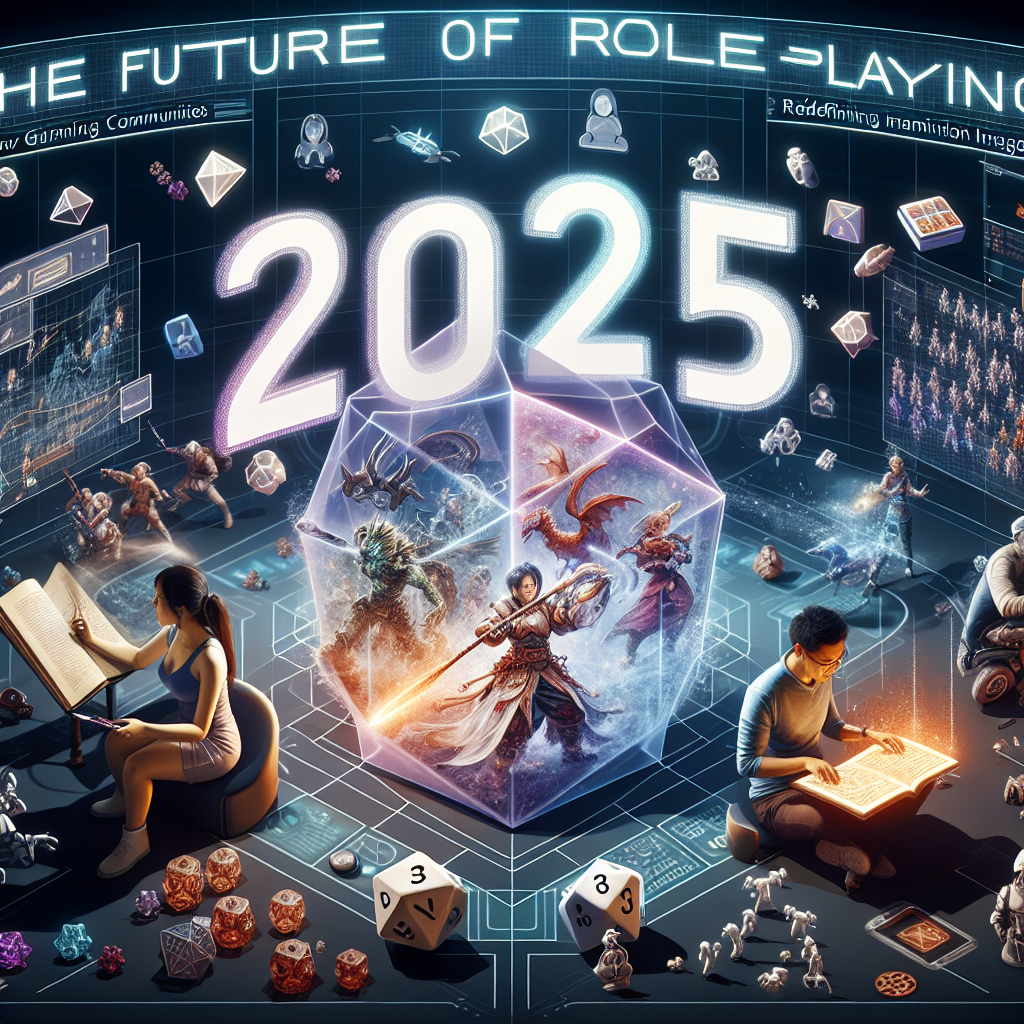The Future of Role-Playing: How Gaming Communities Are Redefining Imagination in 2025
As we venture deeper into the digital age, the landscape of role-playing games (RPGs) is undergoing a transformative shift. By 2025, gaming communities are not merely consumers of content; they have become dynamic ecosystems where imagination flourishes, collaboration thrives, and narratives extend beyond traditional boundaries. The future of role-playing promises to redefine how stories are created, shared, and experienced, positioning communities as pivotal players in the evolution of gaming culture.
The Rise of Collective Storytelling
At the heart of the 2025 role-playing revolution is the concept of collective storytelling. Online platforms and tools have emerged that allow players to craft narratives collaboratively, breaking away from the rigid structures that historically defined RPGs. Games like "Dungeons & Dragons" (D&D) have paved the way for this movement, with platforms like Roll20 and Foundry Virtual Tabletop fostering inclusive environments where players can create rich worlds together.
These collaborative platforms not only provide the mechanics for gameplay but also facilitate community engagement. Gamers contribute to world-building through shared guides, fan art, and collaborative lore documents. The tapestry of shared stories expands organically, allowing players to shape the universe collectively. In 2025, the role of the Game Master (GM) is increasingly collaborative, with GMs functioning more as facilitators of group creativity than as sole arbiters of the narrative.
Immersive Technologies Enhancing Role-Playing Experiences
Advancements in technology have significantly impacted how role-playing games are experienced. In 2025, virtual reality (VR) and augmented reality (AR) are reshaping imaginations in RPGs, providing immersive and interactive environments previously thought to be the realm of science fiction. Players can step into their characters’ shoes like never before, engaging not just visually but physically with the game world.
Furthermore, with the proliferation of AI-driven tools, players can now generate realistic NPCs (non-player characters) and dynamically changing narratives that respond to players’ decisions in real-time. This AI integration fosters deeper emotional connections to the story, where every choice can lead to unpredictable outcomes, ensuring no two campaigns are alike.
Inclusivity and Accessibility in Role-Playing
The evolution of role-playing in 2025 is also marked by a firm commitment to inclusivity and accessibility. Gaming communities have championed diverse representation, creating spaces where marginalized identities are celebrated. This shift is seen in both storytelling and game mechanics, with diverse narratives that reflect various cultural backgrounds, genders, and abilities.
Additionally, accessibility tools are becoming standard in RPGs. Colorblind modes, simplified interfaces, and platforms that enable deaf players to engage in conversations through subtitles and sign language interpretation foster an environment where everyone can participate. The rise of game design that prioritizes accessibility ensures that the passion for role-playing is shared across diverse audiences.
Community-Driven Content Creation
The boundaries between player and creator are blurring in this new era of role-playing. As gaming communities become more engaged, user-generated content (UGC) is flourishing. Projects like "Skyrim" modding communities and platforms like itch.io provide fertile ground for players to create and share their own adventures, systems, and character options.
In 2025, the value of community-driven design is recognized, where players’ ideas can lead to potential game expansions or spin-offs. Crowdfunding platforms allow aspiring game designers to collaborate with their communities, creating games that reflect the desires and needs of their players. This cooperative approach not only democratizes game development but also enriches the role-playing landscape.
Conclusion: The Uncharted Territories Ahead
As we advance through 2025, the future of role-playing games is a tapestry woven from the threads of technology, community, and shared imagination. The role-playing genre is evolving into a more communal experience, where players are both participants and creators. The narratives born from these interactions are limited only by the bounds of creativity.
Gaming communities, with their collaborative spirit, are redefining what it means to be a storyteller. As technology continues to advance and inclusivity remains a priority, the worlds we create together will grow richer and deeper, opening up uncharted territories of imagination and experience. In this exciting future, role-playing transcends gaming—it becomes a powerful medium for storytelling that binds communities together in ways previously unimaginable.




